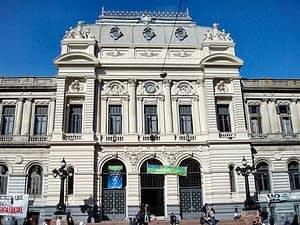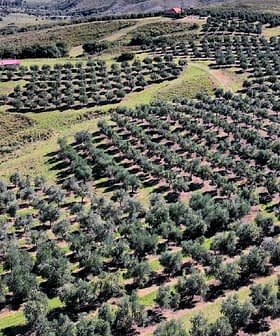By Daniel Williams
Olive Oil Times Contributor | Reporting from Barcelona
Uruguayan University Inaugurates Breakthrough Sensorial Laboratory for Olive Oil Evaluation
The Department of Chemistry at the University of the Republic in Uruguay recently inaugurated a Sensorial Evaluation Laboratory to analyze native olive oils in order to achieve certification from the International Olive Oil Council. The project is subsidized by the National Agency for Research and Innovation (ANII) and funds from the Program to Strengthen Scientific Services which provide 80% of the money for the investment, totaling some $450,000.
Project director Maria Antonia Olivia Grompone spoke of the need for such centers due to the growing incidences of olive oil fraud throughout the world, something many see as the result of falling market prices: “Now when an oil is labeled as extra virgin, consumers need to be reassured that this label complies with the actual chemical makeup and taste of the oil.”[1]
In Uruguay, while the olive oil market remains relatively small, consumption is nonetheless on the rise as consumers look to reap the nutritional benefits of olive oil which has been publicized as being the key ingredient in the healthful Mediterranean diet. There are currently about one hundred olive oil producers in Uruguay and industry experts predict that within the next 4 to 5 years, there will be enough Uruguayan olive oil to both satisfy internal demands and for export to other markets.
In order to make these exports profitable, however, it is necessary to secure a high added value for the Uruguayan olive oil, something achieved by receiving certifications from the International Olive Oil Council: the multinational agency influential in the marketing and regulation of olive oils on the world market. To ensure that the Uruguayan olive oil meets these criteria, the project will also fund a tasting panel accustomed to the sensory qualities necessary for international certification.

- Grompone

Ms. Gompone stated that Uruguayan olive oil has the potential to be highly profitable and sought after as it offers the same qualities as other imported olive oils at more affordable prices. She claims that further public education is necessary to make consumers more aware of the healthful properties of olive oil consumption as well as the long term benefits of continued state investments in the industry: “At the moment we are analyzing various olive trees to determine which adapt best to various soils and climates throughout different zones of the country and we now boast the only plant in Uruguay which allows producers to take small amounts of olive oil and determine the product’s characteristics and mixing possibilities with other oils.“1
.
.
.
[1] “Se inauguró Laboratorio de Evaluación Sensorial para Aceites de Oliva” August 24, 2010.









